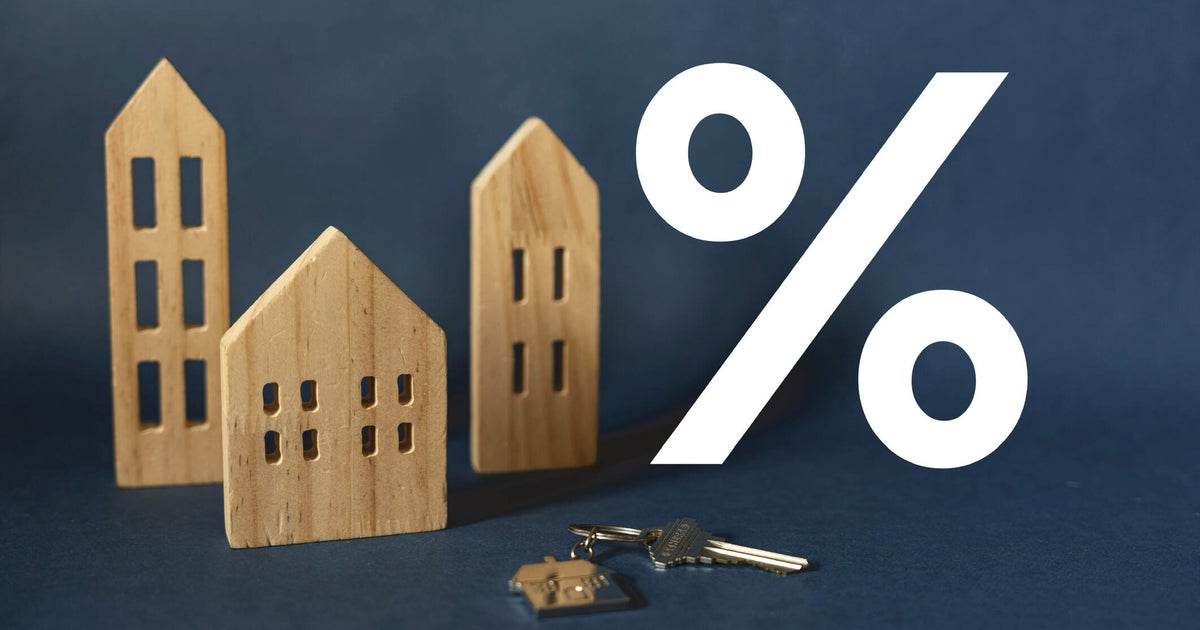How much mortgage can you afford based on your salary, income and assets?
There are signals that U.S home prices may be falling - a drastic difference from trends prospective homebuyers were seeing during the coronavirus pandemic. But while these price cuts may tempt you to snatch up a house quickly, you should still stop to consider what your price range is and prepare a home buying budget.
Think about questions like: How much can you afford to pay for your mortgage each month? What price point does that payment equate to? What mortgage rates do you qualify for?
In order to get a better idea of what mortgage you can afford, you should first check your rates. An online marketplace can help you find out what you qualify for and calculate the potential savings over the life of your loan. Check your rates today!
Understanding these numbers can help you set realistic, manageable expectations and keep your home search on track. Here's how to determine them.
What can you afford?
To start, you'll need a good grasp of your finances, specifically the total income you're bringing in each month and the monthly payments for any debts you owe (student loans, car loans, etc.).
Generally speaking, no more than 25% to 28% of your monthly income should go toward your mortgage payment, according to Freddie Mac. You can plug these numbers (plus your estimated down payment) into a mortgage calculator to break down the monthly payment you can afford and your desired home price.
Keep in mind that this is only a rough estimate. You should also take into account the consistency of your income. If your income fluctuates or is unpredictable, you may want to aim for a lower monthly payment to relieve some financial pressure.
See if you're a good candidate to take out a mortgage right now by answering a few quick questions.
Remember, costs also may vary by location, so you'll also want to take that into account when determining which town or city you're looking to buy in.
What you qualify for vs. what you can afford
Though the above steps can give you a good idea of what you can afford, the number you come up with may not match what a mortgage lender deems you're eligible for when you apply.
Mortgage lenders base your loan amount and monthly payment on several factors, including:
- Credit score: Your credit score heavily influences your interest rate, which plays a big role in your monthly payment and long-term loan costs. Higher credit scores typically mean lower interest rates (and lower monthly payments). The lowest rates are usually reserved for borrowers with 740 scores or higher, data from Fannie Mae shows. Use this free online tool to determine your credit score now.
- Debt-to-income ratio: Mortgage lenders also look at your debt-to-income ratio, or DTI, which indicates how much of your monthly income your debts take up. The lower your DTI is, the larger the payment you can afford. Fannie Mae says lenders typically want your total debts - including your proposed mortgage payment - to account for no more than 36% of your pay (though you may qualify with a DTI of up to 50% in some cases).
- Your assets and savings: The amount of savings you have in the bank and any IRAs, 401(k)s, stocks, bonds and other investments will impact your loan, too. Having more of these liquid assets makes you less of a risk and could influence how much a lender is willing to loan you.
- Loan term: Longer-term loans come with smaller monthly payments because they spread the balance out over more time. For example, a $300,000 mortgage (with a 10% down payment) at today's average 30-year rate of 5.23% would cost around $1,487 per month for a 30-year loan. Meanwhile, the same $300,000 across a 15-year term would cost $2,048 - nearly $600 more per month (based on the average 15-year interest rate of 4.38%.)
- Loan type: The type of loan you're taking out matters, too. FHA loans, for example, have maximum loan limits you can't exceed. This year, the FHA's national loan limit "floor" is $420,680, the U.S. Department of Housing and Urban Development reports. Conventional loans go higher (up to $647,200 in most markets), while jumbo mortgage loans offer even larger limits.
- Rate type: Whether you choose a fixed- or adjustable-rate loan will also come into play. Adjustable-rate loans typically have lower interest rates at the start of the loan, but they increase over time. Fixed-rate loans start with a higher rate but remain consistent for the entire loan term.
When you apply for a mortgage loan, your lender will give you a loan estimate that details your loan amount, interest rate, monthly payment and total loan costs. Loan offers can vary greatly from one lender to the next, so you'll want quotes from a few different companies to ensure you get the best deal.
What other costs could be added to a mortgage payment?
While the principal and interest will make up the bulk of your monthly mortgage payment, other costs can increase the overall payment amount.
- Private mortgage insurance (PMI): If your down payment is less than 20% of the home purchase price, your conventional mortgage lender may require you to buy private mortgage insurance — a type of insurance policy that helps secure the lender if a homeowner stops making their monthly house payments. While you can typically have it removed once you reach 20% equity, it will still drive up your mortgage payments at first.
- Property taxes: It is common to have your property tax bundled with your monthly mortgage payment. Those payments typically go into an escrow account and are automatically released when the bill is due. Even if your property tax isn't bundled, it is still a new cost to account for on a monthly basis.
How to qualify for a bigger mortgage
If you don't qualify for the mortgage you need to buy your ideal home, there are ways to increase what you're eligible for. To start, work on improving your credit score. If you can qualify for a lower rate, it will allow you to buy in a higher price range. It's also important to reduce your credit card debt as much as possible.
Reducing your debts will also put you in a better position to get a bigger loan. If you have tax debt, you can work with an expert to start reducing what you owe. Debt consolidation may also be an option worth pursuing, particularly if it helps save you money by combining your debts into a more manageable payment. There are multiple debt consolidation alternatives to explore.
You can also increase your income - either by taking on a side gig, finding a passive income stream or putting in extra hours at work.
Bottom line: The more income you're able to free up each month, the more a mortgage lender will be willing to loan you.




